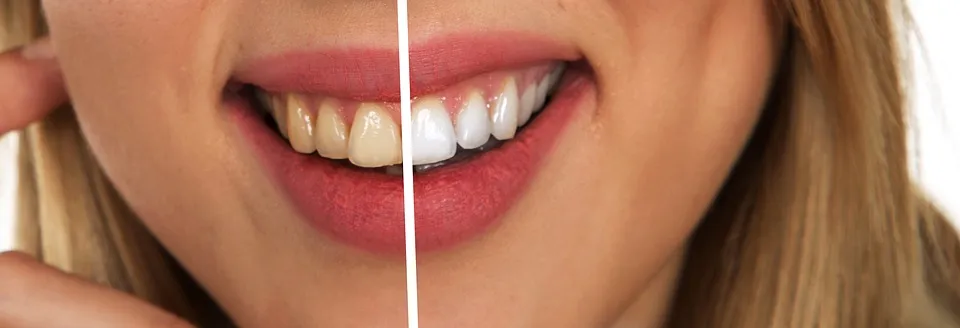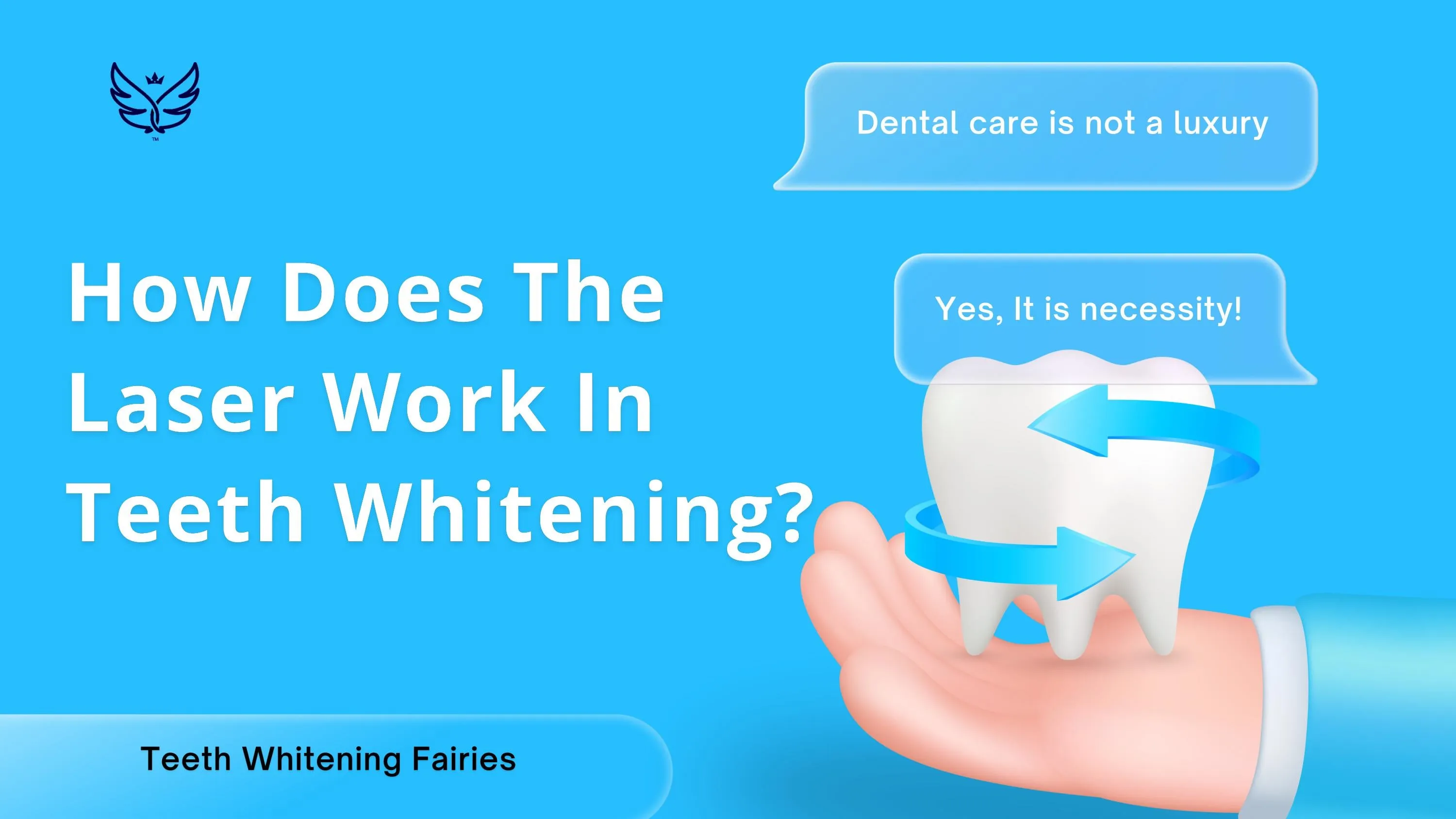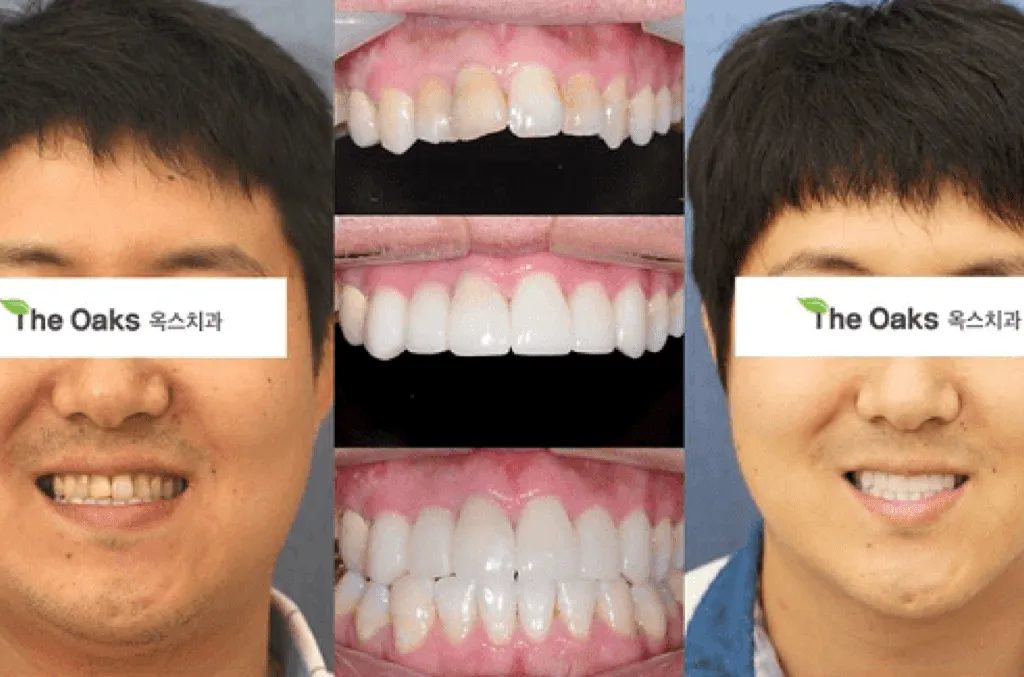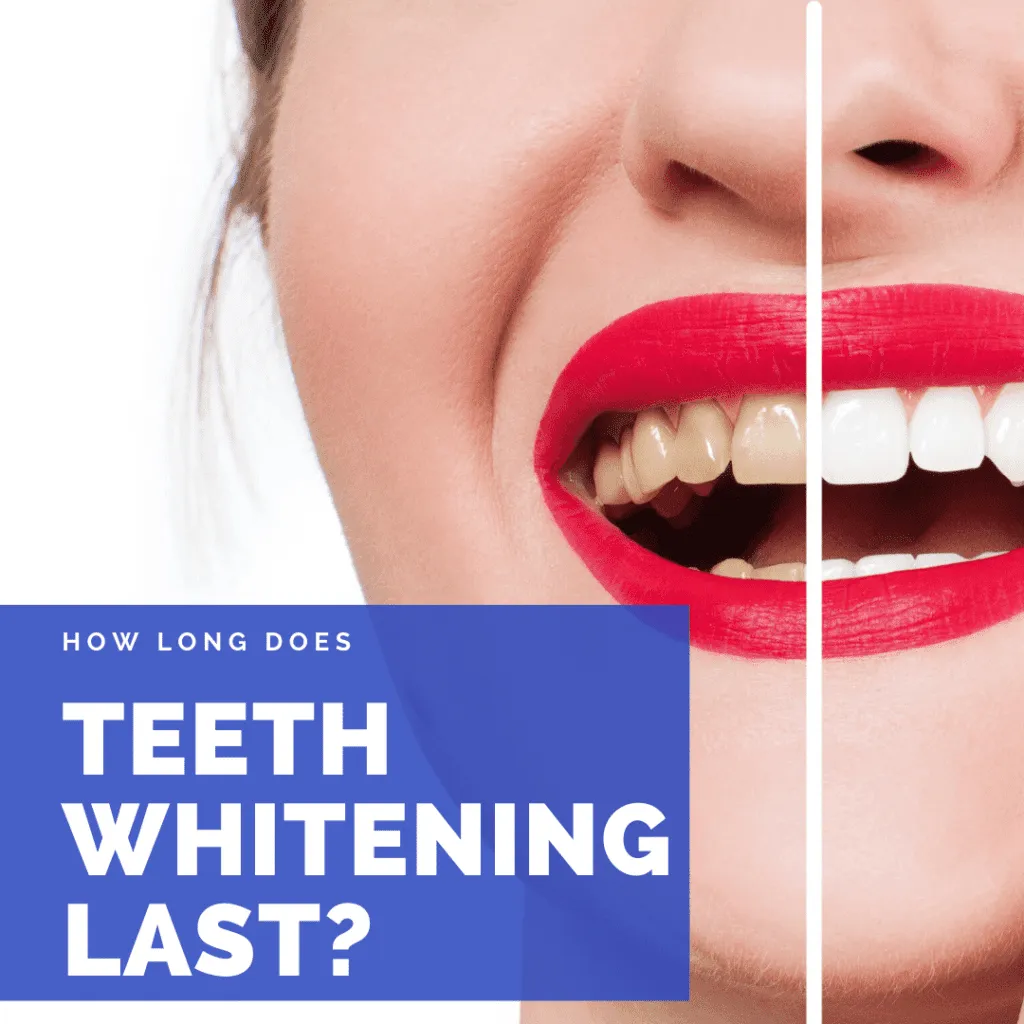Understanding Laser Teeth Whitening
Laser teeth whitening, also known as power bleaching, is a cosmetic dental procedure designed to brighten your smile significantly in a relatively short amount of time. Unlike over-the-counter whitening products, laser teeth whitening is performed by a dental professional. It involves the application of a high-concentration bleaching agent, typically hydrogen peroxide, to the teeth. This is then activated by a special laser, which accelerates the whitening process. The procedure has gained popularity because of its quick results and the dramatic improvement it can provide in tooth color. However, it’s essential to understand what laser teeth whitening entails and how long the results typically last to manage expectations and ensure you are making an informed decision. The longevity of the results is influenced by several factors, which we’ll explore in detail.
The Laser Teeth Whitening Procedure
The laser teeth whitening procedure typically begins with a thorough cleaning of the teeth to remove any plaque or surface stains. This ensures the whitening agent can effectively penetrate the enamel. Next, a protective barrier is applied to the gums to shield them from the bleaching solution. The whitening agent is then applied to the teeth, and the laser light is directed onto the teeth to activate the whitening process. This process can be repeated multiple times during a single session, depending on the desired level of whitening and the condition of the teeth. The entire procedure usually takes between one to two hours. After the treatment, the dentist may provide instructions on how to care for your teeth and maintain the whitening results. Following these instructions is crucial for maximizing the duration of the whitening effect.
How the Laser Enhances Whitening

The key to laser teeth whitening’s effectiveness lies in how the laser interacts with the bleaching agent. The laser emits a specific wavelength of light that acts as a catalyst, accelerating the breakdown of the hydrogen peroxide. This speeds up the oxidation process, which is what removes the stains and discoloration from the teeth. This enhanced reaction allows the bleaching agent to penetrate the enamel more efficiently, providing a deeper and more uniform whitening effect than traditional methods. The use of laser technology also allows the dentist to precisely control the process, ensuring that the teeth are whitened evenly and minimizing the risk of sensitivity. The increased efficiency of laser teeth whitening is why it can deliver dramatic results in a single session.
Factors Influencing the Duration of Results
Several factors can influence how long the results of laser teeth whitening will last. Understanding these factors is key to setting realistic expectations and adopting habits that will help maintain your bright smile for as long as possible. From your daily habits to the types of stains you have, each aspect contributes to the longevity of the whitening effects. This section explores these crucial influences, providing insights into how to best manage and protect your investment in a brighter, whiter smile.
Your Diet and Lifestyle
One of the most significant factors affecting the duration of your whitening results is your diet and lifestyle. Foods and drinks that are high in staining pigments can gradually re-stain your teeth. Coffee, tea, red wine, and dark-colored sodas are notorious for causing discoloration. Similarly, highly pigmented foods like berries, curries, and tomato-based sauces can also contribute to staining. Smoking is another major culprit, as it introduces nicotine and tar, which not only stain teeth but also accelerate the aging process, leading to further discoloration. Limiting the consumption of these items and avoiding smoking are essential steps in maintaining a white smile. Rinsing your mouth with water after consuming staining foods and drinks can help minimize their impact.
Oral Hygiene Practices

Proper oral hygiene is crucial not only for overall dental health but also for maintaining the results of laser teeth whitening. Brushing your teeth at least twice a day with a whitening toothpaste, flossing daily, and using mouthwash can help remove surface stains and prevent the buildup of plaque and tartar, which can make your teeth appear dull. Regular dental check-ups and cleanings are also essential. A professional cleaning can remove any surface stains that brushing and flossing might miss and help maintain the brightness of your teeth. Following a consistent and thorough oral hygiene routine is one of the best ways to ensure your laser teeth whitening results last as long as possible.
The Type of Stains Present
The type of stains you have before undergoing laser teeth whitening can also affect how long the results last. Extrinsic stains, which are surface stains caused by food, drinks, and tobacco, are generally easier to remove and tend to respond well to whitening treatments. Intrinsic stains, which are deeper stains within the tooth structure, may be more challenging to remove and could potentially fade back over time. The effectiveness of laser teeth whitening depends on the nature and severity of the staining. A dental professional can assess your teeth and determine the type of stains present and provide a more accurate estimate of how long the whitening results will last. Regular professional cleaning is key.
The Initial Shade of Your Teeth
The initial shade of your teeth before the laser teeth whitening procedure plays a significant role in how long the results will last. If your teeth were heavily discolored before the treatment, the results might not last as long compared to someone with less staining. Teeth that are naturally darker or have more pronounced discoloration may require more aggressive treatments to achieve the desired results. Furthermore, the more significant the initial change, the more noticeable the gradual return to the original shade can be. The dentist can help set realistic expectations based on your initial tooth shade and the level of whitening achievable. Maintenance treatments might be necessary to maintain the desired brightness.
Different Laser Teeth Whitening Products

The specific products used during laser teeth whitening can also influence the longevity of the results. Different bleaching agents and laser systems can have varying levels of effectiveness and may impact how long the whitening effect lasts. The concentration of the bleaching agent, the duration of the treatment, and the specific laser technology used all play a role. Dentists often choose products based on their clinical experience, the patient’s needs, and the latest advancements in dental technology. Discussing the specific products and technology used during your treatment with your dentist can give you a better understanding of what to expect in terms of results and their duration. High-quality products and techniques generally lead to more lasting results.
Maximizing the Longevity of Your Results
There are several proactive steps you can take to maximize the longevity of your laser teeth whitening results. These strategies focus on maintaining a healthy lifestyle, practicing diligent oral hygiene, and seeking professional care when needed. By adopting these habits, you can enjoy a brighter, more confident smile for a longer period. Understanding the importance of each step and incorporating them into your daily routine is key to preserving your investment in a whiter smile.
Maintaining a Bright Smile
To maintain your bright smile, it’s essential to follow a few key practices. First, avoid or limit the consumption of foods and drinks known to stain teeth. If you do consume them, rinse your mouth with water immediately afterward. Regular brushing with a whitening toothpaste is also crucial, preferably after every meal or at least twice a day. Consider using a straw for beverages like coffee, tea, and soda to minimize their contact with your teeth. Additionally, avoid smoking or using tobacco products, as they are major contributors to tooth discoloration. Incorporating these practices into your daily routine is fundamental for maintaining the results of your laser teeth whitening.
Professional Maintenance and Touch-Ups

Professional maintenance is an essential component of prolonging the effects of laser teeth whitening. Regular dental check-ups and cleanings are vital. Your dentist can assess your teeth, remove any surface stains, and recommend touch-up treatments if necessary. Professional touch-up treatments involve applying a whitening agent for a shorter duration than the initial procedure, which can help restore brightness. The frequency of these touch-ups varies depending on your lifestyle, diet, and oral hygiene habits. However, many dentists recommend touch-up treatments every six months to a year. Consulting with your dentist about a personalized maintenance plan is recommended to keep your smile bright and healthy.
When to Consider a Touch-Up Treatment
Knowing when to consider a touch-up treatment is essential for maintaining your bright smile. If you notice your teeth gradually becoming less bright, or if you start to see the return of stains, it might be time to schedule a touch-up. Other indicators include increased sensitivity to staining foods and drinks or a general feeling that your smile isn’t as radiant as it once was. Touch-up treatments can usually restore your teeth to their original brightness, and the dentist can assess and determine the best course of action based on your individual needs. Regular dental check-ups are also the best way to monitor the shade of your teeth and determine the right time for a touch-up treatment.
Potential Side Effects and Considerations
While laser teeth whitening is a generally safe and effective procedure, it’s important to be aware of potential side effects and other considerations. Sensitivity to hot and cold foods and drinks is a common side effect, which usually subsides within a few days. In rare cases, some people may experience gum irritation. It’s important to inform your dentist of any pre-existing conditions, such as tooth decay or gum disease, before undergoing the procedure. Furthermore, it is not recommended for pregnant or breastfeeding women. Discussing any concerns and understanding the potential risks is crucial to make an informed decision about whether laser teeth whitening is right for you.
In conclusion, the longevity of laser teeth whitening results varies depending on several factors, including your diet, lifestyle, oral hygiene, and the type of stains present. While results can last anywhere from several months to a few years, proper care and maintenance are key to maximizing the duration of your bright smile. Following your dentist’s recommendations, practicing good oral hygiene, and being mindful of staining foods and drinks will help you maintain your results for the long term. Regular dental check-ups and professional touch-up treatments can also play a significant role in preserving your investment in a whiter, more confident smile.
